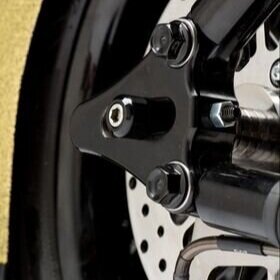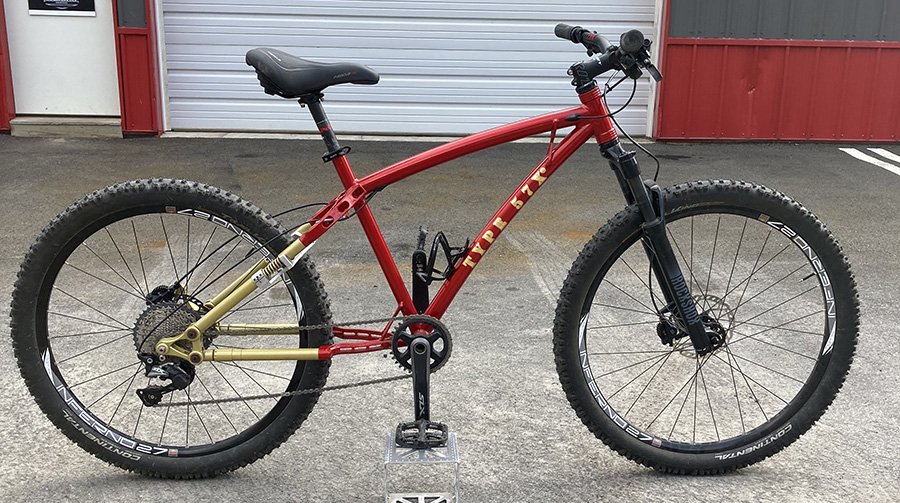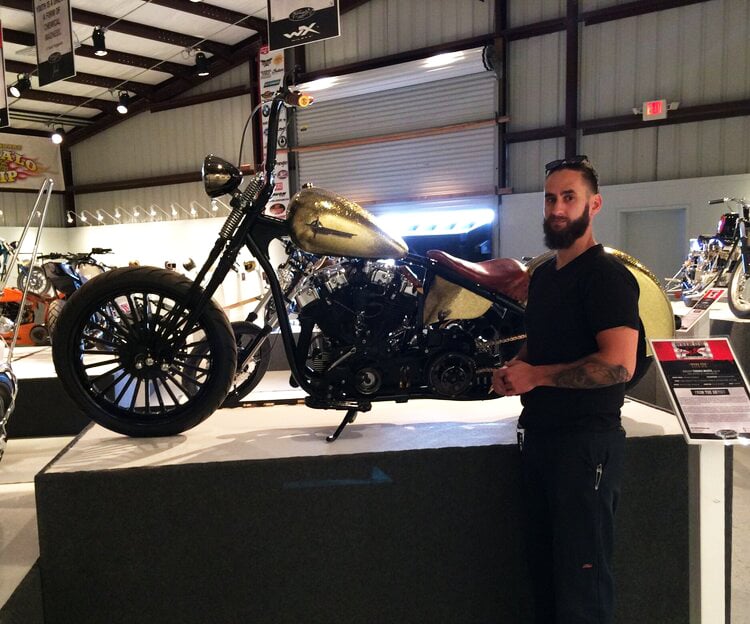Fabbro Industries, located in upstate New York, is carving out a niche by developing suspension solutions and small-batch runs of custom architecture components for their customers. Terence Musto, the founder and owner of Fabbro Industries, shared his journey from finance to the world of custom motorcycle and bicycle building, and suspension technology.
With a background in business and a degree in finance, Musto initially pursued a career in the financial sector. However, his passion for motorcycles led him to turn down a job offer and become an apprentice to a custom motorcycle builder. After gaining experience, he set up his own shop in upstate New York, where he started creating custom motorcycle parts and developed a groundbreaking frame design.
“I had this idea for this motorcycle frame, because we had built a lot of rigid frame motorcycles,” Musto explained. “There was this thing where everybody built these old style hardtail frames with no rear suspension. I built one when I was an apprentice, and it got written up in magazines and stuff - it was a beautiful bike. But every time I rode it I was like, ‘This just feels like punishment!’”
Musto's innovative idea involved integrating suspension into frame elements, providing a smoother and more comfortable ride compared to traditional rigid frame motorcycles. Recognizing the potential of his concept, he applied for patents, eventually securing two US patents with a third pending.

Bringing the Vision to Life
While continuing to build custom motorcycles, Musto faced challenges in finding suspension manufacturers willing to embrace his design in his custom motorcycles. While he spoke with a number of larger manufacturers, they wanted to do basic repackaging of their particular brands. So, Musto decided to take to manufacturing the suspension systems himself.
Determined to bring his vision to life, he did fundraising and got some interest, but he continued bumping into people talking about bicycle suspension. This led him to explore the possibility of applying his frame technology to bicycles, which offered a more accessible market for testing and development.
“We made the decision to start prototyping our same frame technology, but as a bicycle instead, with the idea being if we can prove that this works, maybe we can attract the manufacturer to license the tech. If they licensed the patents from us, then we could take that money and move on to our next invention, so to speak.”

Musto was familiar with Tormach machines, but getting one wasn’t on his radar for this project initially. That is, until he started looking at outsourcing the prototyping.
“I had a design for one part of our frame, the axle block, and I submitted a quote to Xometry. It came back at like $500 a pop, per axle block. I was like, ‘I don't even know if this design is right.’ And, I would need two axle blocks per frame, and a minimum of four frames for testing. Once I did all the math, I realized that I was buying a Tormach.”
Comparing Tormach vs $100k VMC
Musto immediately began developing bicycle frames with integrated suspension systems, while also taking on occasional side-work with his Tormach PCNC 1100. He had previously worked in a shop that had “monster” vertical machining centers, but he recognized that setup changes would take hours. As a small business that was prototyping and doing various other work, picking a Tormach was the right choice.
With the PCNC 1100, Musto has the versatility to pivot between his three major streams of income for the business. He can easily shift from machining high-end, custom home architecture elements to prototyping for other small businesses to prototyping and developing his own suspension parts.
“Let's say I could afford a $100,000 machine... I better be running that thing three shifts a day, six to seven days a week. And if I'm here and that machine is not running, I'm losing my mind. Because I gotta make that lease payment or whatever it is. Versus with the Tormach, I can take time out of the day to do an interview with you, the great people at Tormach, and when I go back tonight and I fire it up, it's no problem. Even if I don't fire it up until Friday, there's no stress about taking an extra day to go through the file or triple check my programming.”
Musto's flexibility to work on small quantity runs attracted customers who had been turned away by larger job shops. Fabbro Industries' has the ability to stay efficient with all three income streams, which provides a valuable advantage for both prototyping and customers’ work.
“The thing that drove us getting the Tormach, and doing more machine work, was the bicycle frame, but in doing so, it opened up this whole other world of revenue stream.”
Musto's relentless pursuit of his passion and his willingness to embrace new challenges demonstrate the spirit of innovation and entrepreneurship that drives Fabbro Industries forward.
Be sure to follow everything Musto is up to on the Fabbro Industries Instagram.


